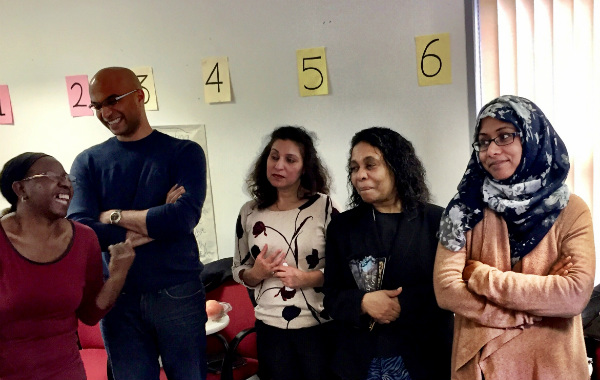
Hormoz explores our understanding of the term ‘lived experience’?
Have you ever had a problem that you felt you were experiencing in isolation? Maybe you spoke to people about it, and maybe they were even experts in that field, but they didn’t quite get what you were going through. And then you shared your problem with someone who had experienced the same thing. They got you. They understood. It made a difference and allowed you to unlock some of the things you’d held on to. They had a similar lived experience to you.
This expression and, more importantly, approach, is increasingly valued for what people bring to a group, discussion, a community, and even a job. In work and careers, it highlights the shift in recent years of not just concentrating on people’s qualifications and general experiences, but about lives lived and how valuable that can be.
In terms of lived experience, this month sees various aspects of marginalisation being highlighted and celebrated. June Pride month in the LGBT+ calendar. In this country, Pride is about remembering how far we have come in a relatively short period of time.
For some, it’s a time to consider how far so many around the world have yet to go to have anywhere near the levels of freedom and openness we have here. It’s easy to forget that being gay is still illegal in over 70 countries, some of which carry out the death penalty for homosexuality. Our work with LGBTQ+ communities reminds us that Pride is still a vital element of a human rights struggle.
As I write this, Refugee Week 2021 recently started on the 14th June and the week culminates in UNHCR’s World Refugee Day on the 20th June. We have written about this week before and have worked several times with migrants and refugee groups. These have proved to be highly enriching experiences for both the attendees and for us at Result CIC.
And that’s partly because both of these areas of marginalisation are part of my own lived experience of being a gay refugee.
One of the reasons that Result CIC’s programmes are so mutually rewarding is that everyone involved has a common understanding of ‘lived experience’. It’s about the formative and often tough experiences that individuals have lived through which creates a deeper, more empathetic understanding of the situations of which people have been part. For us, your lived experience and ours is a vital component in the success of our programmes, coaching and training sessions dealing with the impact of marginalisation.
We have worked many times with participants in our programmes to enable them to realise the huge strengths that their lived experience can bring to them. These can be as valuable as qualifications, although are rarely recognised as so. We have partnered with Lived Experience Movement to deliver our latest programme for migrants and refugees.
Despite the increasing recognition of the value that lived experience can bring to, for example, job roles, there’s still controversy around the approach.
When the mental health charity MIND recently advertised a £50k role as Head of Lived Experience, they wrote 'Candidates for this role will have a personal direct experience of mental health problems with substantial experience of integrating this experience into your day-to-day work to inform your values, communications and approach to lived experience and community leadership.’ The approach was praised by some, criticised by others who felt that ‘lived experience’, however traumatic, was being touted as a form of career currency, like something to highlight on your CV.
At the same time, lived experience is now being used as a form of creative censorship, as was pointed out in A Brief History of ‘lived experience’ by James Innes Smith – The Statesman, April 2021
‘… spread to the creative world where authors are criticised for daring to imagine a life that isn’t their own and, on matters of race, where nobody can comment on issues affecting those of a different race because of a lack of 'lived experience’.’
It’s happening in politics too. Kamala Harris mentioned in an interview that she had said to Joe Biden that she would always share with him her ‘lived experience, as it relates to any issue that we confront.’
In reality, there’s a balance to be achieved here. Lived experience provides authenticity but that isn’t necessarily at the expense of other factors.
Continuing to discuss Kamal Harris in 'Why are politicians suddenly talking about their 'lived experience'? Kwame Anthony Appiah wrote in November 2020:
‘What makes the invocation of lived experience such a powerful move – the fact that it’s essentially private, removed from inspection – is exactly what makes it such a perilous one. No doubt a story about an injustice you’ve experienced, or a positive story about a state school or a public hospital, may be more powerful than some abstract evocation of equality. Still, people across the ideological spectrum will have their own perceptions of injustice, their own stories of public-sector success or failure. And so I hope the vice-president-elect will offer, alongside her lived experience, her considered judgment. We go wrong when we treat personal history as revelation, to be elevated above facts and reflection. Talk of lived experience should be used not to end conversation but to begin them.’
Studies have found that those who lean towards more conservative politics lack empathy whilst liberal thinkers are more empathetic and, if the recent political history of the West is anything to go by, that would seem to be true.
So perhaps empathy is what is at the heart of the value of lived experience.
It feels like this debate will continue for some time and create some possible heated discussion! 'What do you think about this issue? Contact us with your ideas.